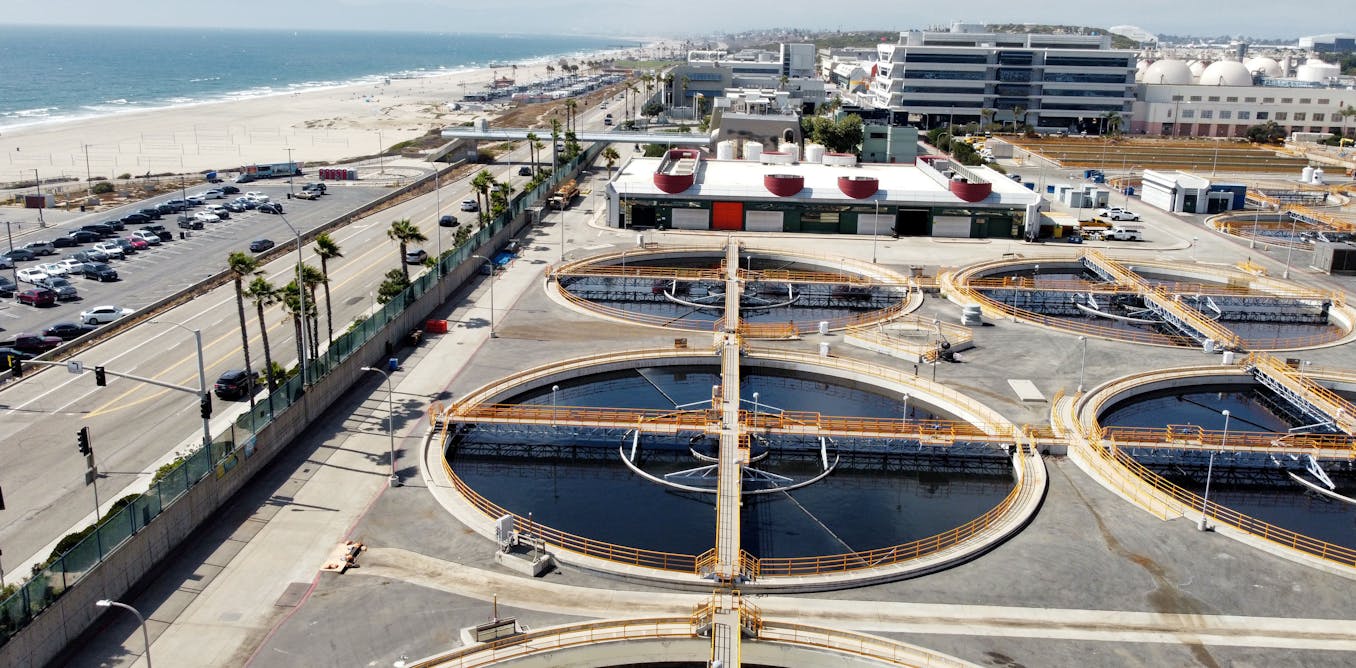In June, a fuel delivery to a Johns Hopkins Hospital campus went terribly awry, spilling 2,000 gallons of diesel into Baltimore’s harbor. As the Maryland capital raced to contain the mess, responders discovered a problem: They didn’t have access to reliable power at the waterfront site.
Usually in these kinds of situations, responders bring in fossil-fuel generators. But city officials wanted to do better than burning more fuel while cleaning up diesel. So they tracked down Scott Calhoun, chief operating officer of Power Up Connect. The Baltimore-based company has begun to build mobile battery units that can store enough energy to back up an entire hospital or, in this case, energize a harbor cleanup crew.
The company is one of several groups developing mobile battery systems to serve large electricity needs. Volvo builds such systems to charge its all-electric excavators, loaders, and other heavy construction equipment. Tesla has trucked in batteries to beef up the performance of its EV Supercharging stations during times of peak demand.
The batteries are a mobile version of a battery energy storage system, or BESS. In the past, BESS has been used in stationary locations to store grid-scale electricity to help balance supply and demand, such as storing solar energy so that it can be used at night or storing backup power in case of outages. The improvements to both the chemistry and engineering of lithium-ion batteries has made it possible to move megawatt-level power on the back of a semi truck.
The development opens the possibility to commercialize clean, large-scale electricity on the go for applications that previously relied solely on fossil-fuel generators.
Why are Automakers Developing Mobile BESS?
Power Up Connect got its start, in 2008, providing small power stations that allowed people at concerts or sporting events to recharge their phones. Later, customers began to ask for enough power to support applications like recharging power wheelchairs. Now, the company has scaled up to a trailer that can daisy-chain up to 10 lithium-ion batteries, each with a capacity of 90 kilowatt-hours—slightly bigger than the one that comes in an entry-level Lucid Air electric sedan.
Volvo last year began offering all-electric heavy construction equipment such as loaders and excavators that can move earth with the same force as their fossil-fuel-powered competitors. This equipment needs to be charged, of course, and many clients will want to do that on the job site. So Volvo is building mobile BESS solutions to bring charging to the excavators.
The know-how for Volvo’s mobile BESS stemmed from the building of its growing line of all-electric semi trucks, which use advanced battery chemistries to pack a remarkable amount of energy into a mobile battery pack, says Darren Tasker, a vice president at Volvo Penta, a division of the automaker that uses the company’s technologies for industrial applications.
The improvements to the lithium-ion batteries…
Read full article: Volvo’s Mobile BESS Energizes Construction Sites

The post “Volvo’s Mobile BESS Energizes Construction Sites” by Andrew Moseman was published on 07/24/2025 by spectrum.ieee.org





































Leave a Reply